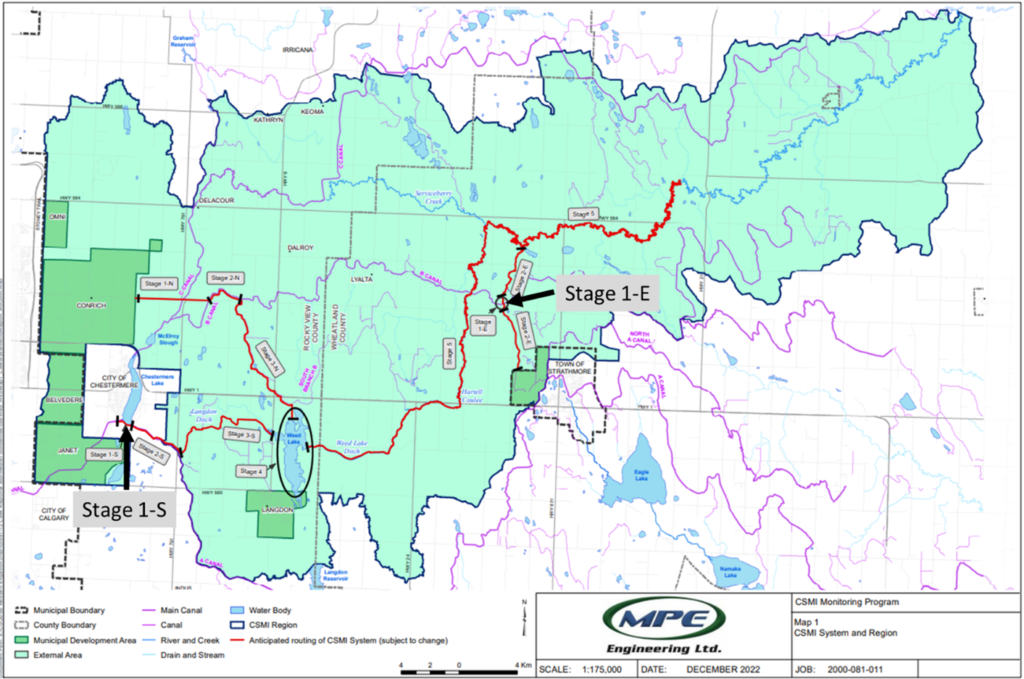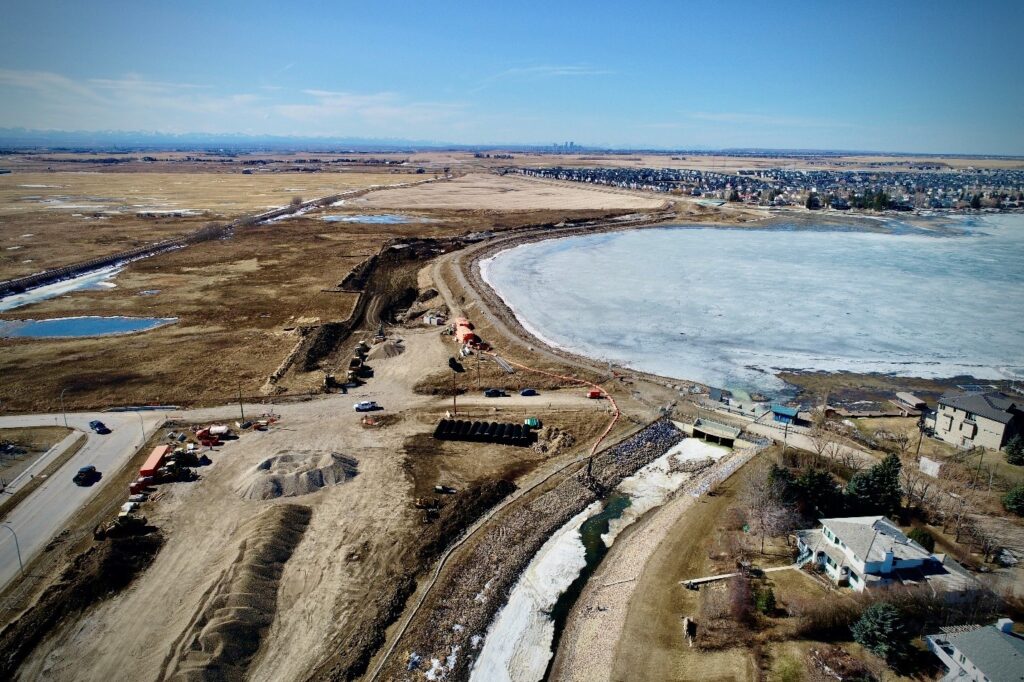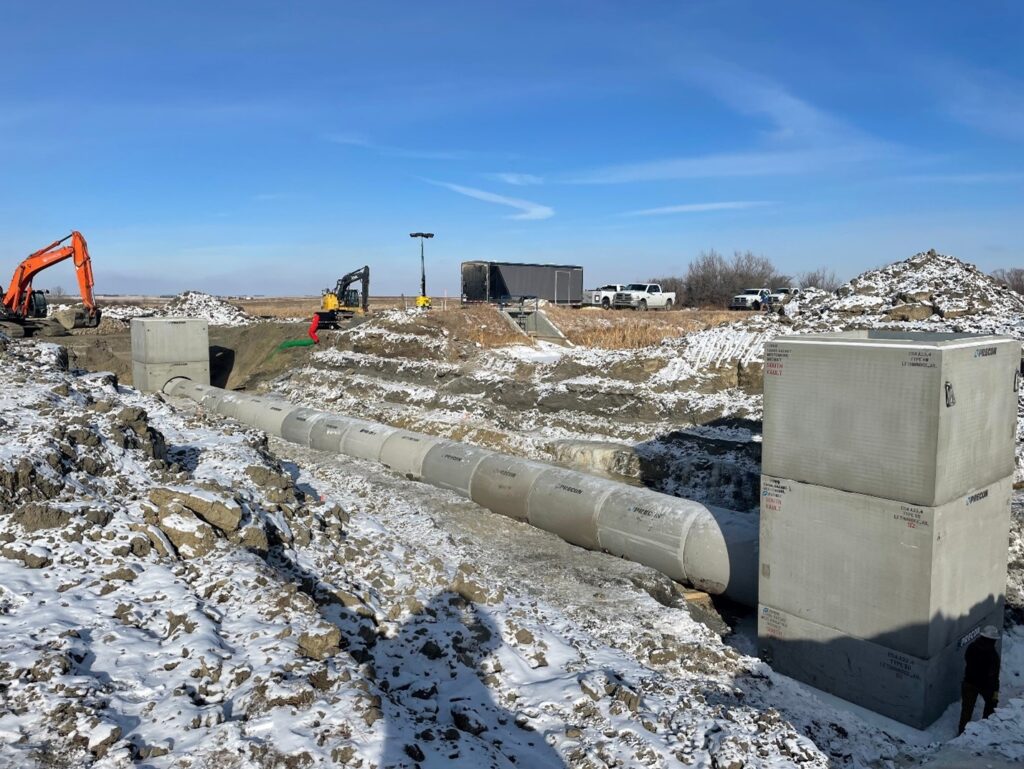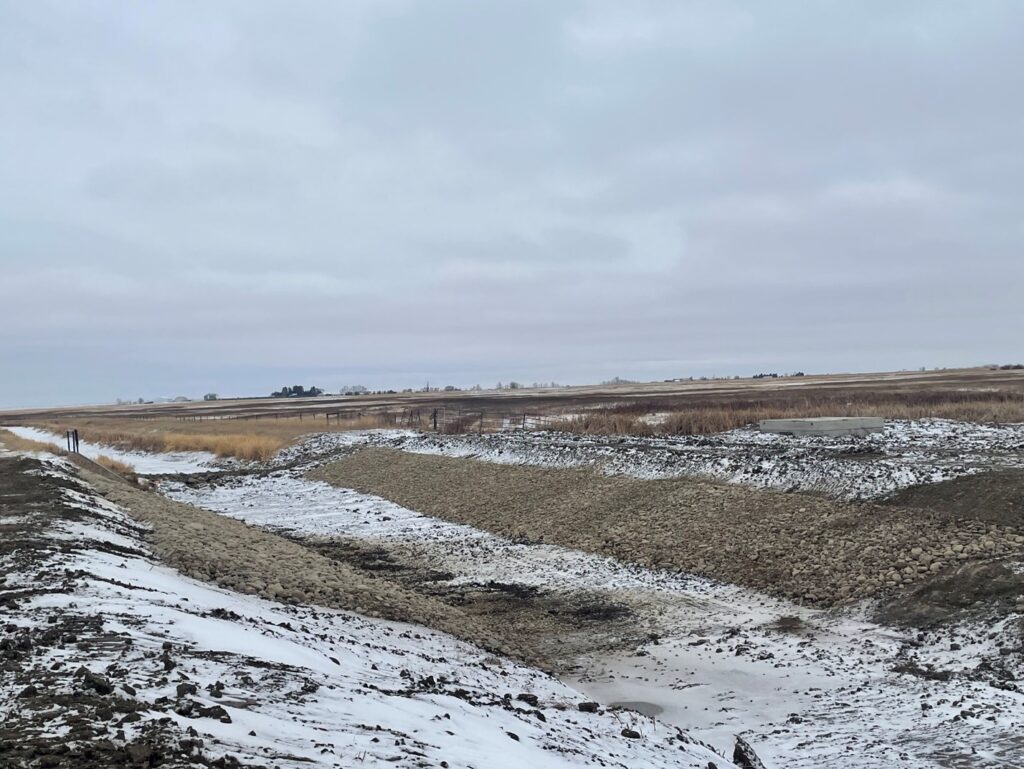CALGARY (October 19, 2023)
Construction has been completed for two initial stages of the Stormwater Management Cooperative (CSMI) system, enabling development to progress with access to an adequate stormwater outfall.
Formally established in 2020, the Stormwater Management Cooperative is an innovative and collaborative approach for managing stormwater through regional cooperation. The Cooperative is a partnership between the Western Irrigation District (WID), The City of Calgary, Rocky View County (RVC), and the Town of Strathmore.
The CSMI system is designed to be built in stages over several decades, providing access to adequate stormwater outfalls for existing and future development in the region. CSMI will also provide flood relief to all partners and protect water quality in the irrigation canals by separating stormwater from irrigation water. Two initial stages have been completed and are already successfully enabling development and protecting water quality.

Figure 1: Boundaries of the CSMI region, the development areas of the municipalities, and the proposed location of CSMI infrastructure. The location of infrastructure is conceptual and subject to change once the CSMI partners begin engagement and consultation with landowners, complete the final design, and apply for regulatory approval.
CSMI south system update
At the south end of Chestermere Lake, the first stage of the CSMI south system construction is complete. Following a wetland assessment, landowner engagement and successful regulatory application process, the construction of Stage 1-S was completed in April 2022. Stage 1-S includes a bypass pipe that will direct runoff into the WID A Canal downstream of Chestermere Lake outlet, keeping stormwater out of the Lake. This Stage of CSMI will provide a future stormwater outlet for existing developments within RVC as well as new development in both RVC and Calgary.
Stage 2-S is the next stage in developing the CSMI south system. This Stage will include a new canal built parallel to the WID A Canal connecting Stage 1-S to Langdon ditch. The parallel canal design is important because it will protect the high-quality irrigation water that is essential for local agricultural producers.

Figure 2: Aerial view of Stage 1-S during construction. Construction of this stage, which will direct stormwater around Chestermere Lake, was completed in April 2022.
CSMI east system update
Construction of the first stage of the CSMI East system near the Town of Strathmore was completed in spring 2022. Stage 1-E consisted of the installation of a new underdrain for existing and future stormwater runoff to bypass the Western Irrigation District’s (WID) irrigation canal (B Canal). Installation of Stage 1-E provides a continuous stormwater outfall for the Lakewood development in the Town of Strathmore, which is now in its second phase of development. Permanent stormwater ponds for Lakewood have been constructed and received all necessary regulatory approvals required for discharge into the CSMI system. Lakewood’s stormwater outfall into CSMI became operational in fall 2023, which allows the next phase of development to continue.

Figure 3: CSMI Stage 1-E pipe and vaults during construction. Stage 1-E was completed in spring 2022 and consists of a new underdrain for existing and future stormwater runoff to bypass the Western Irrigation District’s (WID) irrigation canal (B Canal).

Figure 4: Completed Stage 1-E. WID B Canal has been restored with a stormwater bypass underneath. One of two underdrain vaults can be seen just above the ground surface on the right side of the canal.
Future phases of development will be supported by the next stage of the CSMI east system. CSMI Stage 2-E includes upgrading the natural drainage course downstream of the Stage 1-E underdrain, known as Bazant Drain. These upgrades will ensure that Bazant Drain can adequately accommodate existing rural flows in addition to stormwater from the Strathmore development areas, safely conveying water through the region.
To date, CSMI has been largely funded through provincial and federal grants in addition to contributions through existing levy funding from the municipal members of the Cooperative. The Cooperative recently applied for additional funding through the Disaster Mitigation and Adaptation Fund (DMAF) to construct the north system, which will provide an outfall for future development in the Conrich area. A parallel drainage system is planned for the CSMI north system, similar to the approach being used in the south system. The CSMI partners would like to thank the province and Government of Canada for their ongoing support of the project, which has begun to realize its regional benefits through completion of these initial stages.
